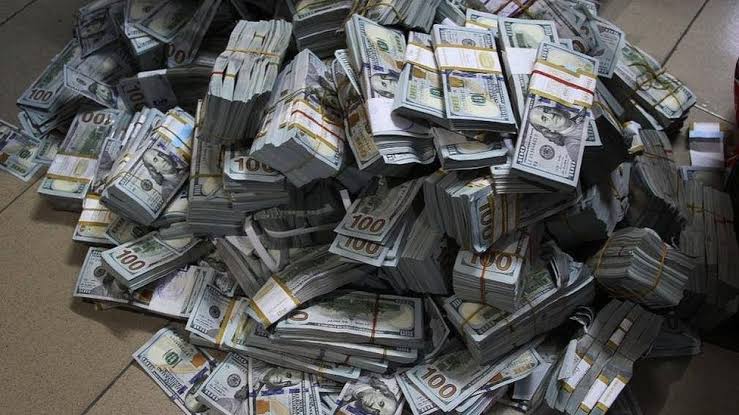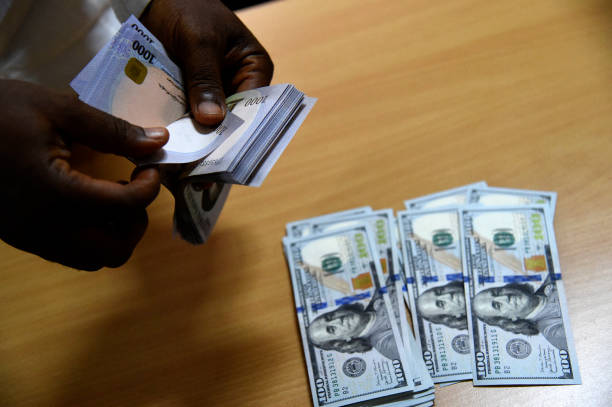The naira continued its downward spiral on Tuesday, reaching N1,825 to a dollar, despite efforts by the Economic and Financial Crimes Commission (EFCC) to curb the activities of suspected manipulators and speculators.

Just a day prior, it was reported that EFCC‘s intervened in the well-known Abuja Zone 4 market, where Bureau De Change operators were targeted in a bid to halt the rapid decline of the naira.
However, within less than 24 hours of the EFCC’s action, the naira’s depreciation persisted, plummeting from N1,700 against the dollar to N1,825 within the same period.
This decline marks an all-time low for the naira against both the dollar and pound sterling in Nigeria’s history, despite efforts by the Central Bank of Nigeria to stabilize the currency’s value.
The naira’s downward trend predates the tenure of Bola Tinubu, but has intensified since he assumed office last May, particularly following the decision to float the currency.
In September, the naira experienced a significant drop, trading at N1,000 to one dollar in the parallel market. This notable depreciation underscored the challenges of managing the national currency amidst soaring inflation.
Criticism of the government’s economic policies, including the scrapping of fuel subsidy and consolidation of foreign exchange windows into the single Importer and Exporter (I&E) window, has contributed to the naira’s devaluation. According to a report by Price Water Coopers, these policies led to a staggering 98% devaluation of the naira.
READ ALSO: Economic Hardship: Stop Cursing Tinubu, Primate Ayodele Urges Nigerians
Despite these challenges, Tinubu’s administration has defended its strategies, such as the removal of petrol subsidy, as necessary steps towards fostering a more market-driven economy and reducing the government’s financial burden.
However, the persistent decline of the naira remains a cause for concern, highlighting the complexities and consequences associated with the government’s fiscal policies under Tinubu’s leadership.









Leave a Reply